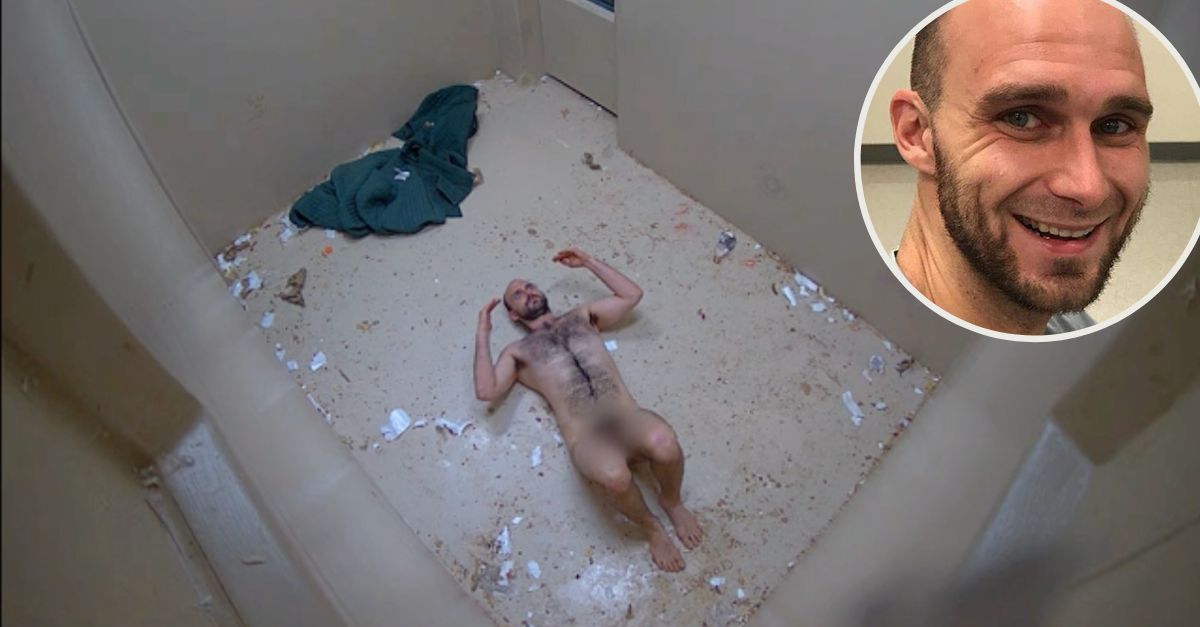Joshua McLemore, 29, died on Aug. 10, 2021, after spending 20 days in “Padded Cell 7” at Indiana’s Jackson County Jail, the complaint filed on Wednesday said. He died after his arrest for pulling a nurse’s hair at a medical center emergency room during an “acute mental health crisis,” according to the lawsuit filed on Wednesday in a federal court in Indiana.
“Josh McLemore wasn’t a criminal. He was mentally ill and in crisis,” lawyer Hank Balson said in a statement emailed to Law&Crime. “He was out of touch with reality and needed help.”
READ ALSO: Courtney Clenney sued by Christian Obumseli’s father for the cost of his “medical care and funeral arrangements
Balson said the jail had no mental health staff, and the nurse who worked there three or four days a week barely interacted with him and ignored the obvious risks of his condition.
The lawsuit, which names Jackson County Sheriff Rick Meyer, jail supervisors, medical staff, and the private jail healthcare provider, said his condition was treatable, and his death was preventable. It alleges egregious violations of his constitutional rights. It seeks unspecified monetary damages for pain and suffering, the loss of the value of his life, punitive damages, and attorneys’ fees.
Messages seeking comment from the sheriff’s office from Law&Crime were not returned.
Jessica Young, the president and chief executive of the jail’s healthcare provider, Advanced Correctional Healthcare, said in a statement to The Indy Star, “We take criticisms of the care provided by our team seriously. We are prohibited from disclosing patient information due to federal HIPAA privacy and confidentiality laws.”
A report by Jackson County Prosecuting Attorney Jeffrey Chalfant agreed with Indiana State Police that McLemore most likely died due to a prolonged lack of attention by Jackson County Jail staff but found jail employees committed no crimes.
“The Indiana State Police investigation did not uncover any evidence indicating that Mr. McLemore was knowingly or intentionally killed by another person, nor any evidence that his death was caused by a knowing, intentional, or reckless act,” Chalfant wrote.
The complaint details the events leading up to McLemore’s arrest and his death at Mercy West Hospital on Aug. 10, 2021, in Cincinnati.
After his arrest, he was placed in a small, windowless, padded isolation cell, lit 24 hours a day by fluorescent lights. He remained confined there, naked, alone, and in a constant state of psychosis for the next 20 days, the lawsuit alleged.
The only times he got to leave his cell “were when guards would forcibly remove him and strap him into restraint devices so they could put him under a shower and clean his cell,” court documents said.
He regularly spilled food on the floor and tore up the styrofoam boxes and paper bags his meals were delivered in, court documents said. The door to a bathroom attached to his cell was locked nearly the entire time he was there, court documents said.
The prosecutor’s report said the door is locked for safety reasons and unlocked at the inmate’s request, but McLemore did not ever ask for access to the restroom or shower, the prosecutor wrote.
The lawsuit claims he urinated and defecated on the floor, and food and trash were often mixed with urine or feces.
The prosecutor said he frequently urinated in his cell but noted that in reviewing jail video, he did not see him ever defecate in his cell.
The jail staff cleaned the cell three times during his 20-day incarceration, but within hours of it being cleaned, it was in disarray again, the prosecutor wrote.
When he entered the jail, he weighed 197.8 pounds and appeared fit and robust. While inside, he ate and drank very little and lost almost 45 pounds in less than three weeks, court documents said. He was under constant watch, and a real-time video feed showed his movements, but jailers “did nothing to intervene or secure needed medical or mental health care until it was too late,” the complaint alleged.
When he was finally sent to the hospital, his condition was so dire that the hospital did not have the resources to treat him, court documents said. He was airlifted to a larger hospital in Cincinnati, where he died two days later, the lawsuit said.
The autopsy listed his cause of death as “multiple organ failure due to refusal to eat or drink with altered mental status due to untreated schizophrenia.”
Also listed as a significant condition contributing to his death but not related to the terminal disease condition was a history of methamphetamine withdrawal, the prosecutor said. The manner of death was listed as natural.
READ POST: Iowa Man Mark A Rissi Pleads Guilty In Arizona Election Threats Case
The complaint documented McLemore’s life, from being raised by a single mother in Mississippi to his hobbies of reading, playing chess and video games, and watching sports. His mother, a former U.S. Navy member, died unexpectedly about 16 months after her son died, court documents said.
The complaint said he started having drug use and mental health problems in high school. He was eventually diagnosed with schizophrenia and had been in a mental institution four times in Mississippi.
“Over the years, he received in-patient psychiatric treatment on various occasions and experienced periods of relative stability that allowed him to work and enjoy life,” court documents said. “But unfortunately, the mental illness and drug problems returned.”
In a statement, Lita Ladner, his aunt, said the loss was painful.
“Josh was my sister’s only child. His loss devastated her,” she said. “He was also my only nephew and a devoted friend to many. Even though he struggled with mental health issues, we loved him with all our hearts.”
Have a tip we should know? [email protected]


